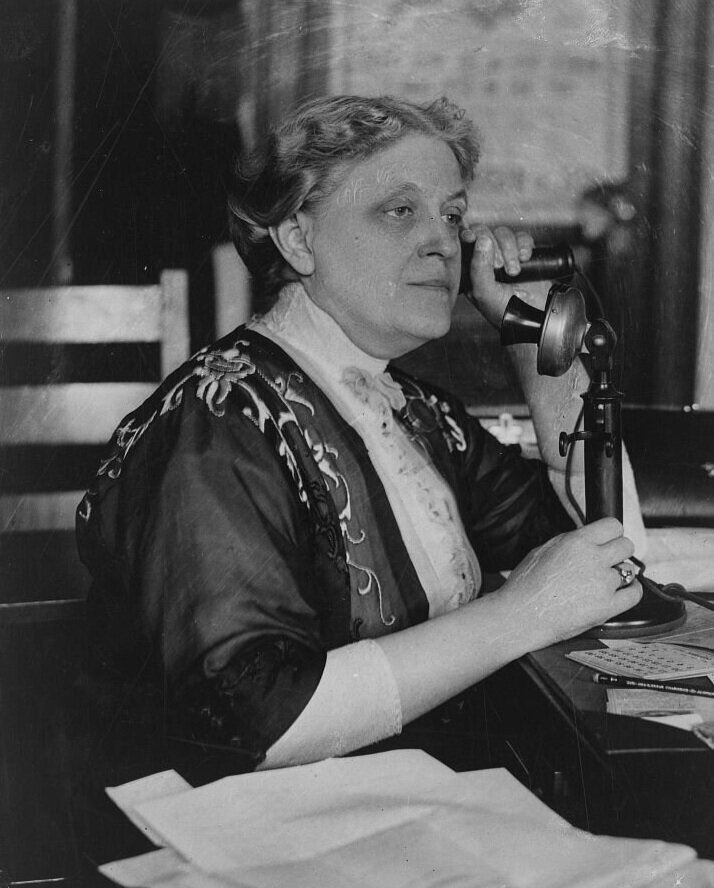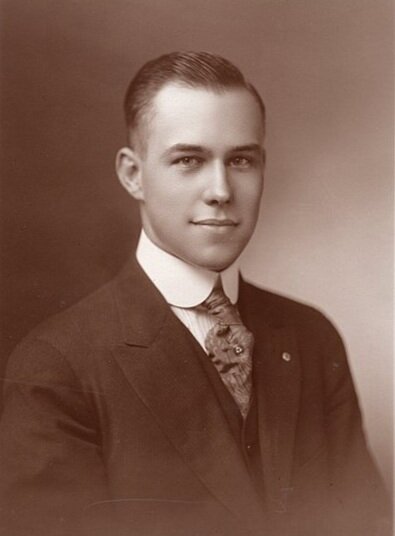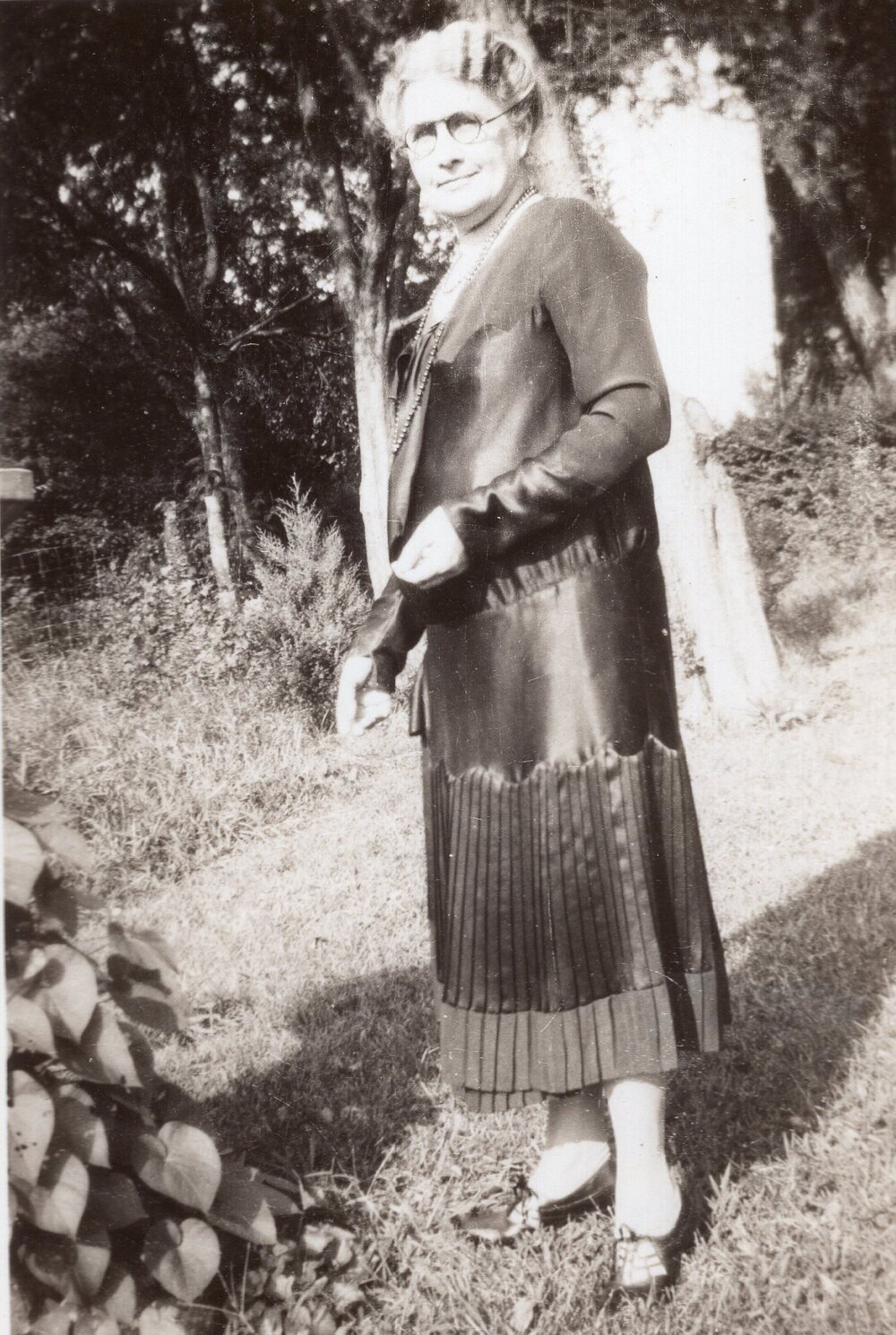The Final Desperate Battle for Suffrage in Tennessee

Carrie Chapman Catt (Library of Congress)
Everyone knew that Tennessee was a dangerous place to stage the decisive battle for ratification of the 19th Amendment, but the suffragists had no choice. It was their last, best hope to secure ratification before the fall 1920 national elections; it was their only feasible prospect for gaining the elusive 36th ratification state to make women’s suffrage part of the Constitution. After seven decades of struggle, it would come down to Tennessee, and that was terrifying. "At this time, I do not believe there is a ghost of a chance of ratification in Tennessee,"[1] National American Woman Suffrage Association (NAWSA) president Carrie Chapman Catt admitted in July 1920.
The federal Suffrage Amendment's ratification process had been going on for a year by then, since Congress had finally approved the legislation in June 1919, after being stalled there for 40 years—a Biblical span of debate, delay, and deceit. When the Senate passed the Amendment by a margin of only two votes, the Amendment went out to the states for ratification in an off-year for many state legislatures—when they were not in regular session—making the process far more difficult. Suffragists had to convince 30 governors to call their legislatures back into special session to act on the Amendment, and many balked at the cost, both financial and political, of bringing representatives back to the state capitals.
Some states ratified quickly and easily: Illinois and Wisconsin raced to claim bragging rights as first state to ratify; New York gave speedy assent in a midnight statehouse session; Pennsylvania legislators stood and sang “America the Beautiful” when they gave thumbs-up to the Amendment. But after a flurry of wins, the suffragists faced a lull in fall of 1919, and had to exert extra pressure on Western states to ratify. Winter and spring of 1920 brought a distressing string of rejections of the 19th Amendment, and suffragists worried that they had lost momentum: if the Amendment was rejected by 13 states, it was dead, and by late spring 1920, nine were already in the “no column,” with more likely.
The Amendment had been rejected by almost all the southern states of the former Confederacy (except Arkansas, Kentucky and Texas), and even two of the old border states—Maryland and Delaware—all using the same primary rationales: states’ rights and racism. Southern legislators viewed the Amendment as a violation of states' rights to decide the voting qualifications for their citizens and objected that the 19th Amendment might allow black women to vote.
When Washington state finally ratified in March 1920—the 35th state—only one more was needed to achieve the approval of three-quarters of the 48 states of the union necessary to reach full ratification. A frantic search for the 36th state began. Suffragists hoped Connecticut or Vermont would come through for them, but the governors of those states—driven by opposition from corporate interests—refused to call their legislators into session. As did the governor of Florida; and North Carolina was poised to reject the Amendment. That left Tennessee as the only remaining feasible (but far-fetched) state still in play.
If the Tennessee legislature ratified the 19th Amendment, it would become the law of the land and 27 million American women would be eligible to vote in every election in every state in the fall. If the Volunteer State rejected the Amendment, the suffragists feared it would flounder and very likely fall short of ratification. The women of 15 states, mostly in the west, already enjoyed the right to vote, thanks to the suffragists' relentless campaigns to change state enfranchisement laws. But for the women in all the other states, a federal Amendment was their only hope for achieving full suffrage. Now it all rested on Tennessee.
But Tennessee was not promising. The state suffrage association was energetic, but splintered by regional and personal animosities; the governor was running for re-election in a tight race and didn't want his campaign complicated by a woman suffrage fight; and the legislature was notoriously susceptible to bribery and special interest pressure. Nevertheless, the suffragists had little choice.

The Hermitage Hotel (The Hermitage Hotel)
The battle was joined in Nashville in mid-July, and all the forces—for and against the Federal Amendment—gathered in the city for a giant six-week brawl. Suffragists from across the state and around the nation flooded into Nashville; joined by political party operatives, lobbyists, journalists, beleaguered legislators, and the many varieties of those opposed to the Amendment.
Carrie Chapman Catt, a protegé of Susan Anthony, and the president of the National American Woman Suffrage Association, the pre-eminent American suffrage organization, came down from New York City to direct the ratification campaign in Nashville. She took up residence for six hot, miserable weeks in the Hotel Hermitage, as the cause to which she had dedicated her life confronted its most bitter challenge. Alice Paul, head of the more radical National Woman's Party, sent a top lieutenant, Sue Shelton White, to lead their rival ratification effort: working towards the same goal, but not in concert with the NAWSA suffragists. Stalwart native Tennessee suffragists took up the front-line positions in persuading their legislators to support the Amendment, chasing them with pledge cards to commit to ratification. Many of those commitments would dissolve in the heat of the Nashville battle.
There were powerful forces working against ratification—ideological, political, and corporate foes, all with their own reasons for objecting to women obtaining the ballot. Politicians, at both the state and national level, were wary of doubling the electorate and contending with an unpredictable new voting bloc—the mysterious "women's vote." Conservative clergymen railed against woman suffrage from the pulpit, as they saw it as a challenge to "God's Plan" for women's obedience to masculine authority.
Many corporations were suspicious of women voting, as they feared it might be bad for their bottom lines. Textile manufacturers worried that if women could vote, they might want to abolish child labor, and those factories depended upon cheap child labor for profitability. Railroad interests relied upon Congress and state legislatures for favorable treatment (and had purchased the loyalty of many legislators) and saw women's power at the ballot box as a threat to their secure investments.
The liquor industry was a longtime foe of woman suffrage, harking back to the historic alliance of the suffrage and temperance movements. Even though the 18th Amendment and Prohibition were already in effect in the summer of 1920, the "liquor lobby" hoped that if women could be kept away from the polls, and more "wet" representatives were elected to Congress and state legislatures, Prohibition laws might not be enforced too stringently. In Nashville, liquor industry efforts to influence the legislature rose to comical heights with the opening of the so-called "Jack Daniels Suite"—in honor of Tennessee's favorite whiskey—on the eighth floor of the Hermitage Hotel, a rollicking 24/7 speak-easy dispensing liquor to pliable legislators who might be convinced to vote against the Amendment.
But the most passionate foes of the Amendment turned out to be women: the women Anti-suffragists who poured into Nashville to fight against their sisters gaining the vote. Many of these women were social and religious conservatives, who feared that the extension of women's rights—including voting rights—would emasculate men, undermine traditional gender roles, and bring about the moral disintegration of the nation. Women would be emboldened to take an interest in political affairs outside the home, threatening the stability of the American family, while also sullying the tender nature of womanhood. The Anti’s circulated broadsides screaming such slogans as "Can Anyone Terrorize Tennessee Manhood?" and "Heed not the Siren Call of Suffrage" and warned that "America When Feminized" under the 19th Amendment would bring on "organized female nagging forever!"

Harry T. Burn (Wikimedia Commons)
The Anti coalition in Tennessee was bolstered by those women who saw the 19th Amendment as a direct assault on southern sensibilities: male chivalry, states’ rights, Christian teachings, and white supremacy. Anti-suffrage leaders from around the south, as well as national Anti-organizers from New York, Boston, and Washington came to Nashville armed with propaganda to incite racial animosity and fear. Suffragists were portrayed as proponents of “race war": if black women could vote, they might consider themselves socially equal too, and that would topple the entire southern social order.
The suffragists were also not above employing racial arguments for their own benefit, reminding Tennessee legislators that there were more white women citizens than black: thus the Amendment would not really upset the status quo. And even if the 19th Amendment promised the vote to black women, just as the 15th Amendment had promised the vote to black men, the southern states had long ago mastered ways to prevent them from voting, by imposing poll taxes, literacy tests, intimidation, and violence. There was a tacit understanding that the same local customs, the same techniques, could be employed against black women voters.

Febb Burn, mother of Harry Burn (Wikimedia Commons)
In a painful demonstration of the divided loyalties of some southern white suffragists, two veteran national leaders—Kate Gordon of Louisiana and Laura Clay of Kentucky—came to Nashville to work against ratification, side-by-side with the Anti-suffragists they had battled for decades. Their allegiance to the doctrine of states’ rights (and the right of their states to deny black women the vote) made them oppose a federally mandated right to the franchise. They had already been marginalized in the movement by Carrie Catt and NAWSA, and when they passed their former suffrage comrades in the hallways, they did not speak.
The ratification fight in Nashville was waged in the midst of a presidential election campaign, forcing the candidates and their minions into the fray, as well as the lame-duck occupant of the White House, Woodrow Wilson, a come-lately supporter of the Amendment. By the time the legislature convened at the statehouse in early August, Nashville had become a flower-strewn battlefield, with ratification supporters wearing yellow roses on their bosoms and lapels, Anti’s sporting their own campaign symbol, red roses: the whole affair became known as the War of the Roses.
And it got wild: there were booze and bribes and blackmail, fistfights and kidnappings, betrayal, and courage. Spies roamed the hotel hallways, listening through the transoms. Legislators received fake telegrams calling them home on account of invented emergencies. The newspapers commonly called it "Suffrage Armageddon."
The outcome remained in doubt until the very last moment, as the suffragists watched pledged support for ratification slip away. On the night before the final vote, the suffragists were in despair—they did not have the votes to prevail. Even the unflappable Carrie Catt could offer her faithful troops little hope: "We can only pray," she told them.[2] In the end, the fate of the 19th Amendment came down to a single vote of conscience cast by the youngest member of the Tennessee legislature, who, that morning, had received a history-making letter from his mother.
Harry T. Burn of the tiny town of Niota receives rightful credit for listening to the wisdom of his mother, and for voting based upon his own sense of justice. But we should remember that if not for clever political maneuvering, brave votes—and brute arm-twisting—by several other Tennessee politicians (including the once reluctant Governor), young Delegate Burn would not have been in a position to break the tie and carry ratification to victory. We should also remember that the Anti-suffragists in the legislature, and in the state, did not give up the ratification fight gracefully: they smeared Burn with allegations that he was bribed for his vote; they held ugly "indignation" rallies to intimidate him and other pro-ratification legislators; they lodged injunctions and law suits to prevent the amendment from entering the Constitution. Taking advantage of parliamentary skullduggery, on August 31, 1920, the Tennessee legislature actually rescinded its ratification of the 19th Amendment; the action was meaningless in a legal sense, but still represented the lack of consensus—even entering the third decade of the 20th century—on the right of women to vote in the American democracy.[3]
Nevertheless, just moments after Harry Burn made his fateful decision, Alice Paul was able to stitch the 36th and final star on her ratification banner and unfurl it from the window of National Woman's Party headquarters in Washington, D.C. A few days later, Carrie Catt was greeted at home in New York City with a celebratory parade, and presented with a gigantic bouquet of flowers, in suffrage colors, tied with a ribbon offering the thanks of "the 27 million enfranchised women of America." The final challenge by the Antis to the legality of the 19th Amendment was decided by the U.S. Supreme Court in 1922.
Author’s Biography
Elaine Weiss is a Baltimore-based journalist and author, whose feature writing has been recognized with prizes from the Society of Professional Journalists, and her byline has appeared in many national publications. Weiss' most recent book, The Woman's Hour: The Great Fight to Win the Vote (Viking/Penguin) has won critical acclaim from the New York Times, the Wall St. Journal, the Christian Science Monitor, and The New Yorker, hailed as a "riveting, nail-biting political thriller" with powerful parallels to today's political environment. The Woman's Hour was a GoodReads Readers' Choice Award winner, short-listed for the 2019 Chautauqua Prize, and received the American Bar Association's highest honor, the 2019 Silver Gavel Award. Steven Speilberg's Amblin production company is adapting the book for TV, with Hillary Rodham Clinton serving as Executive Producer. A young readers edition of the book, The Woman's Hour: Our Fight to Win the Vote is now available from Random House Children's Books.
Bibliography
Catt, Carrie C. and Marjorie Shuler. Woman Suffrage and Politics. NY: Scribners, 1923.
Gilmore, Inez Haynes. The Story of the Woman's Party. New York: Harcourt, Brace and Co.,1923.
Green, Elna C. Southern Strategies: Southern Women and the Woman Suffrage Question. Chapel Hill: University of North Carolina Press, 1997.
Park, Maude Wood. Front Door Lobby. Boston: Beacon Press, 1960.
Wheeler, Marjorie Spruill (ed), Votes for Women: The Woman Suffrage Movement in Tennessee, the South, and the Nation. Knoxville: University of Tennessee Press, 1995.
Yellin, Carol Lynn and Sherman, Janann. The Perfect 36: Tennessee Delivers Woman Suffrage. Memphis: Serviceberry Press, 1998.
[1] Carrie Chapman Catt to Mrs. Guilford Dudley, July 12, 1920, in Catt Papers, Tennessee State Library and Archives, Nashville, TN, 21.
[2] Abby Crawford Milton Papers, Tennessee State Library and Archives, Nashville, TN.
[3] "Suffrage Rescinded by Tennessee House," Washington Post, September 1, 1920, 1.
